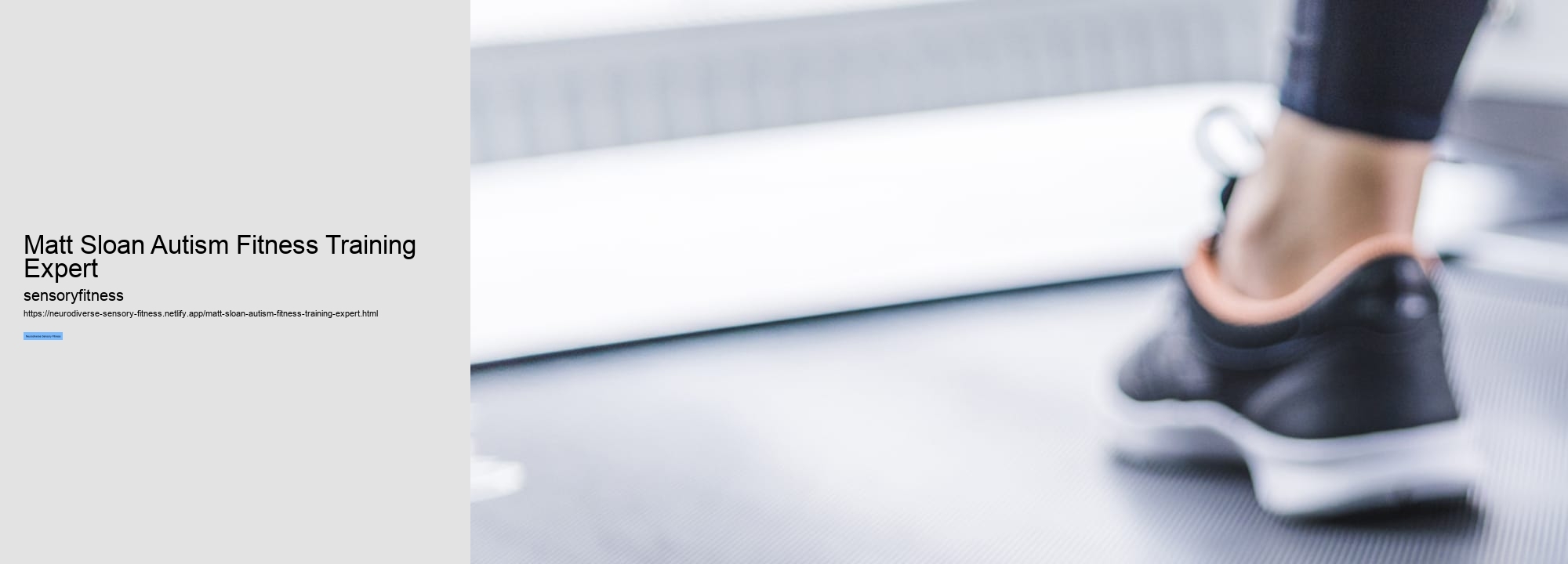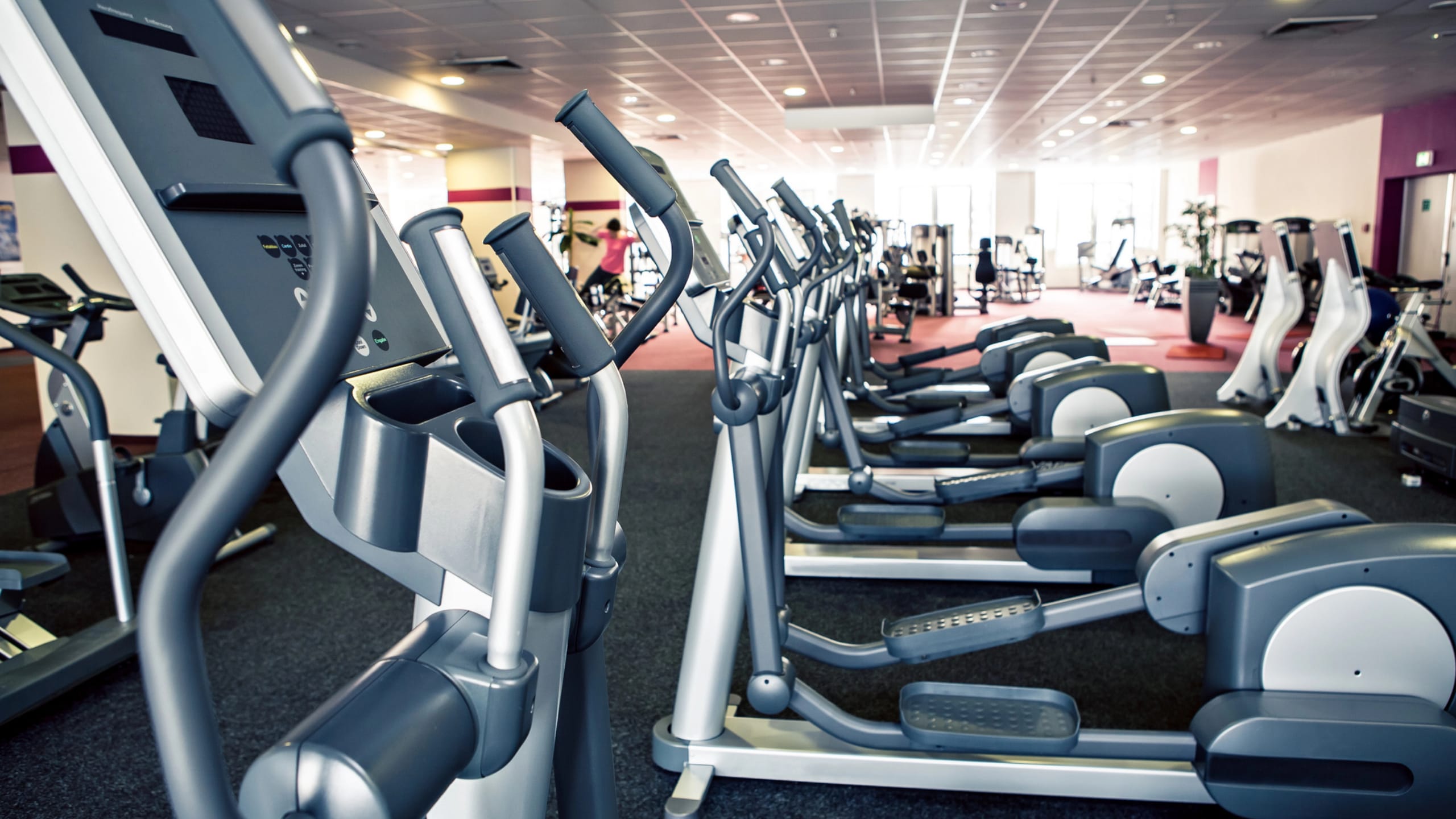

How to Enhance Your Sensory Awareness for a Healthier LifestyleIn today's fast-paced world, it can be easy to get caught up in the hustle and bustle of everyday life. From work deadlines to family obligations, our minds are constantly racing, leaving little time to truly focus on ourselves and our own well-being. However, taking the time to enhance your sensory awareness can have a profound impact on your overall health and happiness. Sensory awareness is the ability to fully engage with each of your five senses – sight, hearing, taste, smell, and touch – in order to heighten your perception of the world around you. By tuning into these senses and being present in the moment, you can better appreciate the beauty of nature, savor delicious meals, and connect more deeply with others. One way to enhance your sensory awareness is through mindfulness practices such as meditation or yoga.
By focusing on these sensations without judgment or distraction, you can cultivate a greater sense of presence and aliveness. Another way to boost your sensory awareness is through spending time outdoors in nature. Whether it's taking a leisurely walk in the park or sitting by a quiet lake, immersing yourself in natural environments can help awaken your senses and reduce stress levels. Pay attention to the sights, sounds, smells, and textures around you – notice the vibrant colors of flowers, listen to birds chirping overhead, inhale the fresh scent of pine trees. In addition to practicing mindfulness and spending time in nature, there are other simple ways you can enhance your sensory awareness for a healthier lifestyle.
Take up a creative hobby like painting or pottery that engages your sense of touch. Listen to music or attend live performances that evoke strong emotions and memories. By incorporating these practices into your daily routine, you can cultivate a deeper connection with yourself and the world around you. Not only will this lead to a greater appreciation for life's simple pleasures but also improve your overall well-being. So take some time each day to tune into your senses – you may be surprised at how much joy and fulfillment it brings!
By actively stimulating our senses through various exercises and activities, we can boost our brain's ability to process information, make decisions, and solve problems more effectively. Sensory training involves the deliberate use of all five senses - sight, hearing, taste, touch, and smell - to engage different parts of the brain and strengthen neural connections. This type of training can help improve memory retention, focus, attention span, and overall cognitive function. To begin engaging in sensory training for improved cognitive function, it is essential to start with a simple exercise such as mindful breathing or meditation. These practices can help calm the mind and increase awareness of our surroundings.
From there, you can gradually introduce more complex activities that involve multiple senses simultaneously. For example, you could try incorporating aromatherapy into your daily routine by using essential oils or scented candles to stimulate your sense of smell while listening to calming music or nature sounds to engage your auditory sense. You could also experiment with different textures by touching various objects with different surfaces or temperatures to activate your tactile sense. Another effective way to engage in sensory training is through mindful eating. Paying close attention to the taste, texture, and aroma of each bite can not only enhance your dining experience but also improve your ability to savor flavors and appreciate food more fully.
Activities such as yoga or tai chi can help promote mindfulness while strengthening both body and mind. Additionally, getting an adequate amount of sleep each night is essential for allowing the brain to rest and recharge. Overall, engaging in sensory training for improved cognitive function requires dedication and consistency but can lead to significant benefits in terms of mental clarity, focus, and overall well-being. By challenging our brains through various sensory experiences, we can unlock new levels of cognitive potential and live a more fulfilling life.
Our senses play a crucial role in how we perceive and interact with the world around us, yet they are often taken for granted. Sensory fitness refers to the ability of our senses – sight, hearing, touch, taste, and smell – to function optimally. Just like physical fitness is important for maintaining a healthy body, sensory fitness is essential for maintaining a healthy mind and emotional well-being. Our senses allow us to experience life in all its richness and diversity.
When our senses are sharp and attuned, we are able to fully engage with our surroundings and derive pleasure from everyday experiences. On the other hand, when our senses are dulled or impaired, it can have a negative impact on our quality of life. Poor vision can make it difficult to read or drive safely. Hearing loss can lead to feelings of isolation and communication difficulties.
Loss of taste or smell can diminish our enjoyment of food and affect our appetite. Even minor sensory impairments can have far-reaching consequences on our overall well-being. Fortunately, there are simple ways to improve and maintain sensory fitness. Regular eye exams can help detect vision problems early on.
Engaging in activities that stimulate your sense of touch – such as gardening or playing a musical instrument – can keep your tactile sensitivity sharp. Moreover, incorporating mindfulness practices into your daily routine can heighten your awareness of your senses and enhance their acuity. Mindful eating, for example, involves savoring each bite of food by paying attention to its flavor, texture, and aroma.
In conclusion, prioritizing sensory fitness is essential for maintaining overall health and well-being. By nurturing our senses through regular check-ups, protective measures, engaging activities, and mindfulness practices, we can enrich our lives with vibrant sensations and profound connections with the world around us. Let us not underestimate the power of our senses in shaping how we experience life – let's embrace them fully in all their splendor!
For individuals who struggle with sensory processing issues, simple tasks like getting dressed or eating can become overwhelming and challenging. However, there are strategies and activities that can help improve these skills and make everyday activities more manageable. One effective strategy for improving sensory processing skills is through sensory integration therapy.


This type of therapy involves engaging in activities that stimulate the senses in a controlled and structured manner. By exposing individuals to different sensory experiences, such as touch, sound, and movement, they can learn to better process and respond to sensory input. Another helpful approach is the use of sensory diets, which involve creating a personalized plan of activities designed to meet an individual's specific sensory needs. These activities may include deep pressure massage, swinging on a swing set, or playing with textured materials like sand or Play-Doh. By incorporating these activities into their daily routines, individuals can gradually improve their ability to process sensory information. In addition to therapy and sensory diets, there are also lifestyle changes that can help improve sensory processing skills.
Adequate sleep is also essential for optimal sensory processing, as fatigue can exacerbate sensitivity to stimuli. Engaging in physical exercise can also be beneficial for improving sensory processing skills. Activities like yoga or swimming can help individuals regulate their nervous systems and improve their ability to focus and concentrate. Overall, improving sensory processing skills requires a holistic approach that includes therapy, lifestyle changes, and regular practice of sensory-related activities. By implementing these strategies into daily life, individuals with sensory processing issues can enhance their quality of life and feel more confident navigating the world around them.
What is neurodiverse sensory fitness and how does it benefit individuals? Neurodiverse sensory fitness is a concept that focuses on using physical activity and sensory experiences to promote overall health and well-being for individuals who have neurodiverse conditions such as autism, ADHD, sensory processing disorder, and other developmental disabilities. The benefits of neurodiverse sensory fitness are multifaceted.
This can lead to increased independence in daily activities and improved quality of life. Additionally, sensory experiences incorporated into fitness routines can help individuals regulate their sensory systems.
On the other hand, vestibular activities like swinging or spinning can provide much-needed stimulation for those who may seek out movement. Furthermore, participating in sensory fitness activities can also promote social interaction and communication skills.
Overall, neurodiverse sensory fitness plays a crucial role in supporting the holistic well-being of individuals with neurodiverse conditions. By incorporating physical activity and sensory experiences into their daily routines, they can improve their physical health, emotional regulation, social skills, and overall quality of life.


It is important to recognize the diverse needs of individuals with different neurological profiles and provide them with tailored fitness programs that cater to their unique strengths and challenges. What are some effective exercises for improving sensory fitness in neurodiverse individuals? Improving sensory fitness in neurodiverse individuals is crucial for promoting overall well-being and quality of life. Sensory exercises can help enhance awareness, coordination, and regulation of sensory input, leading to improved focus, attention, and emotional regulation. There are several effective exercises that can be incorporated into a daily routine to support sensory development in individuals with neurodiversity.
Deep breathing techniques involve taking slow, deep breaths through the nose and exhaling slowly through the mouth. This practice can help calm the nervous system, reduce stress levels, and improve overall relaxation. Deep breathing exercises can be especially helpful for individuals who experience sensory overload or heightened anxiety. Another effective exercise for improving sensory fitness is progressive muscle relaxation.
Progressive muscle relaxation can help increase body awareness and promote a sense of calmness and comfort. Additionally, yoga and mindfulness practices can be highly beneficial for enhancing sensory fitness in neurodiverse individuals. Yoga combines physical postures with breathwork and meditation to promote balance, flexibility, strength, and mindfulness. Mindfulness practices encourage present-moment awareness and non-judgmental acceptance of thoughts, emotions, and sensations.
Sensory integration activities such as swinging gently on a swing set or using a therapy ball for balance exercises can also support sensory development in neurodiverse individuals. These activities provide opportunities to engage the vestibular system (responsible for balance) and proprioceptive system (responsible for body awareness), which can improve coordination and spatial orientation. Incorporating nature walks or outdoor play into daily routines can further enhance sensory fitness by providing exposure to natural stimuli such as sunlight, fresh air, textures, sounds, and smells. Engaging with nature can help individuals with neurodiversity connect with their senses in a meaningful way while promoting physical activity and cognitive stimulation.
Overall, incorporating a variety of sensory exercises into daily routines can help support the development of sensory fitness in neurodiverse individuals. By prioritizing self-care practices that enhance body awareness, relaxation, mindfulness, balance, coordination,and engagement with the environment , it is possible to promote holistic well-being among those with diverse neurological profiles . What role does sensory integration play in promoting overall wellness for neurodiverse individuals? Sensory integration plays a crucial role in promoting overall wellness for neurodiverse individuals. Our senses are constantly bombarded with stimuli from the environment, and for those with neurodivergent conditions such as autism, ADHD, or sensory processing disorder, these sensory inputs can be overwhelming and challenging to process.
Sensory integration therapy aims to help individuals organize and interpret sensory information more effectively, ultimately leading to improved overall well-being. By engaging in sensory integration activities such as swinging, brushing, weighted blankets, or deep pressure massage, individuals with neurodiverse conditions can learn to better regulate their responses to sensory stimuli. This can result in reduced anxiety levels, improved focus and attention, enhanced social interactions, and increased self-regulation skills. Furthermore, incorporating sensory integration techniques into daily routines can help individuals with neurodiverse conditions feel more comfortable and confident in their surroundings.
In conclusion, sensory integration plays a vital role in promoting the overall wellness of neurodiverse individuals by helping them better navigate the sensory world around them. By implementing strategies that support efficient processing of sensory information, we can empower individuals with neurodivergent conditions to thrive and reach their full potential. What are the key components of a neurodiverse sensory fitness program? A neurodiverse sensory fitness program is a specialized approach to physical activity that caters to individuals with diverse neurological abilities.
There are several key components that make up a neurodiverse sensory fitness program. One important aspect is the incorporation of various sensory stimuli into the workout environment. This can include using different textures, colors, sounds, and scents to engage participants and enhance their overall experience. For example, incorporating soft mats for floor exercises or playing calming music during yoga sessions can help create a more comfortable and stimulating atmosphere.
The five hallmark symptoms of autism, as per the DSM-5, include challenges in social communication and interaction, repetitive behaviors, restricted interests, sensory sensitivities, and difficulty in understanding and expressing emotions.
Setting fitness goals provides direction, motivation, and a sense of accomplishment, helping individuals to track progress and maintain consistency in their exercise routines.
People deal with ADHD through a combination of medication, therapy, lifestyle adjustments, and support systems tailored to their individual needs.
Autistic individuals can vary widely in their personalities, strengths, and challenges. Some may excel in certain areas such as mathematics or music, while others may struggle with sensory sensitivities or social interactions.